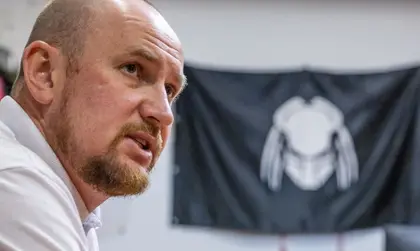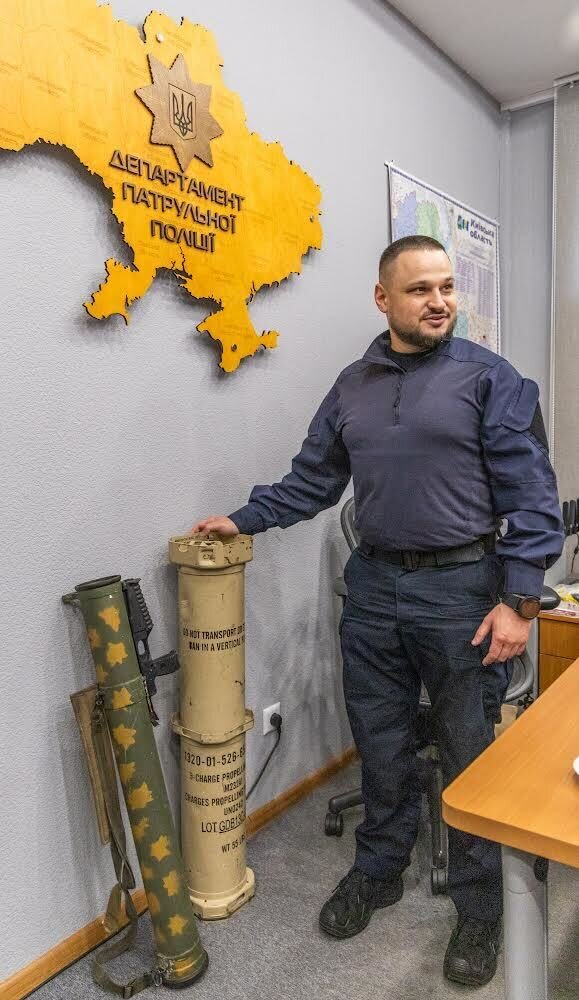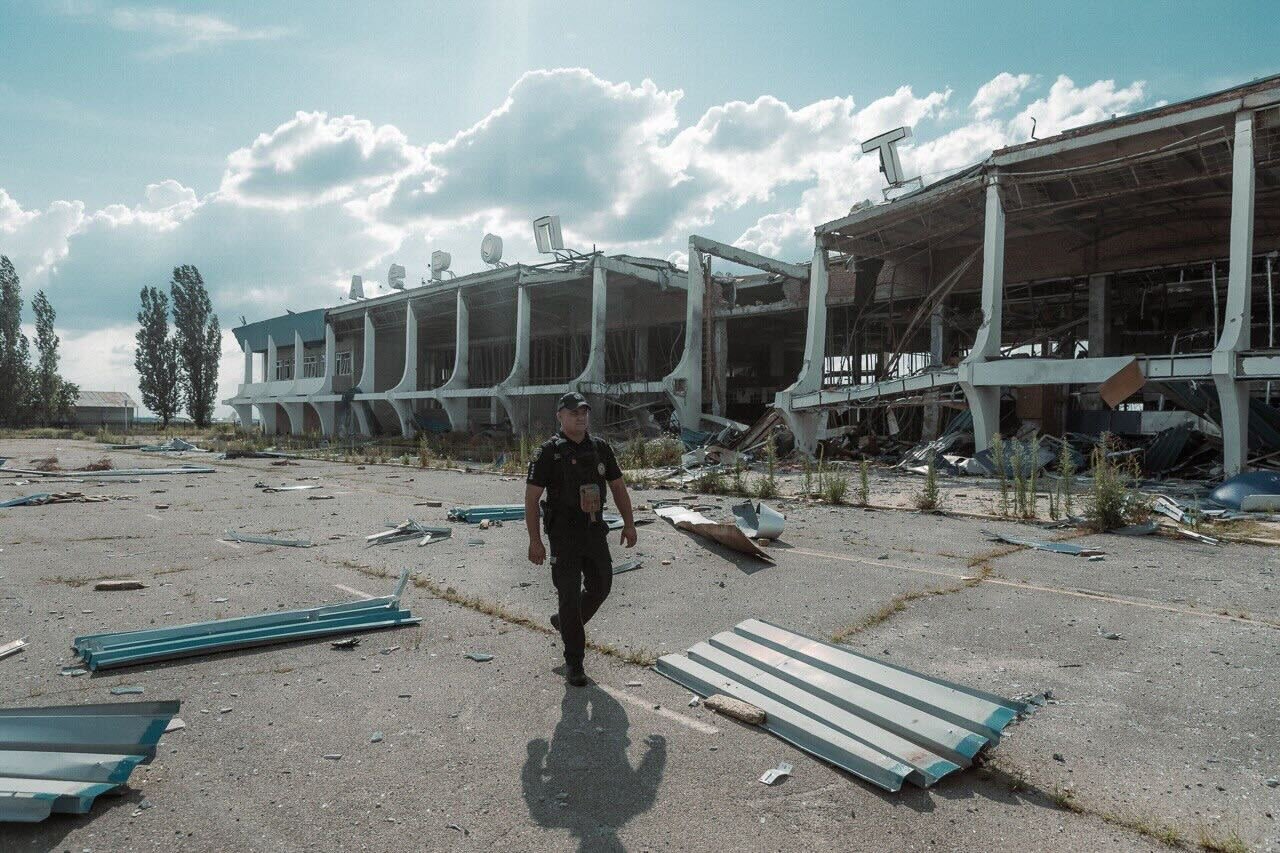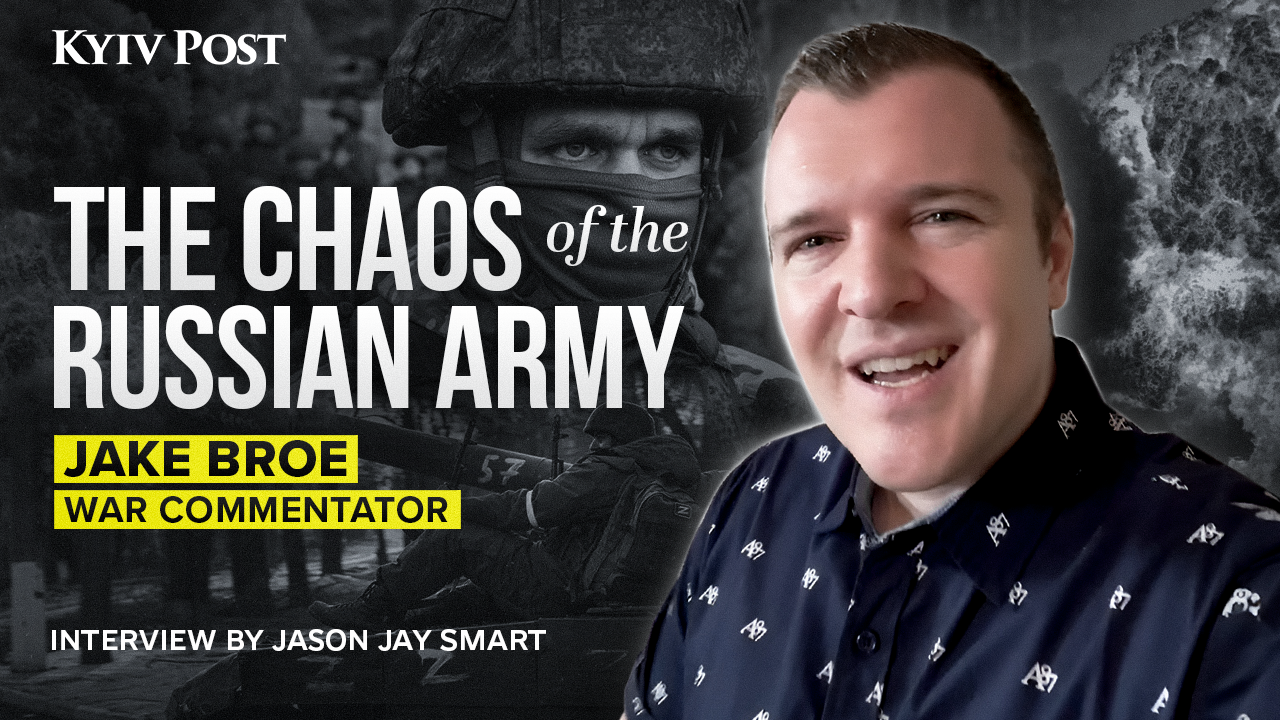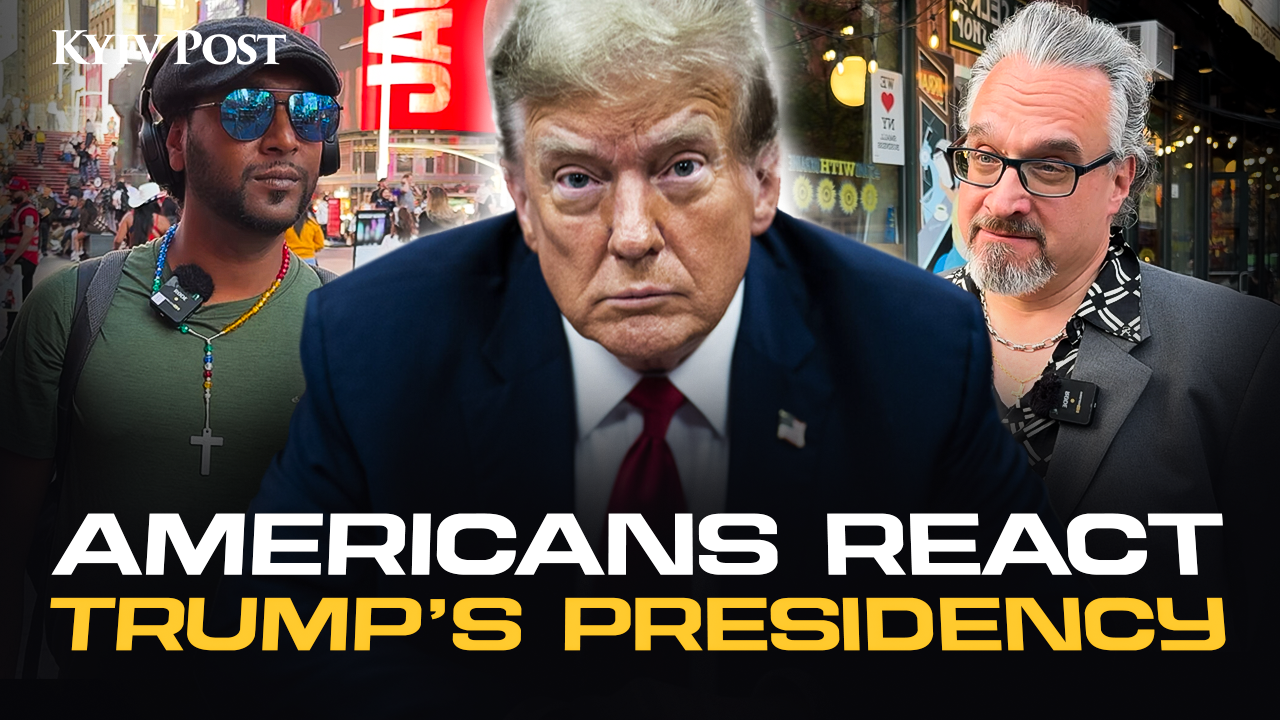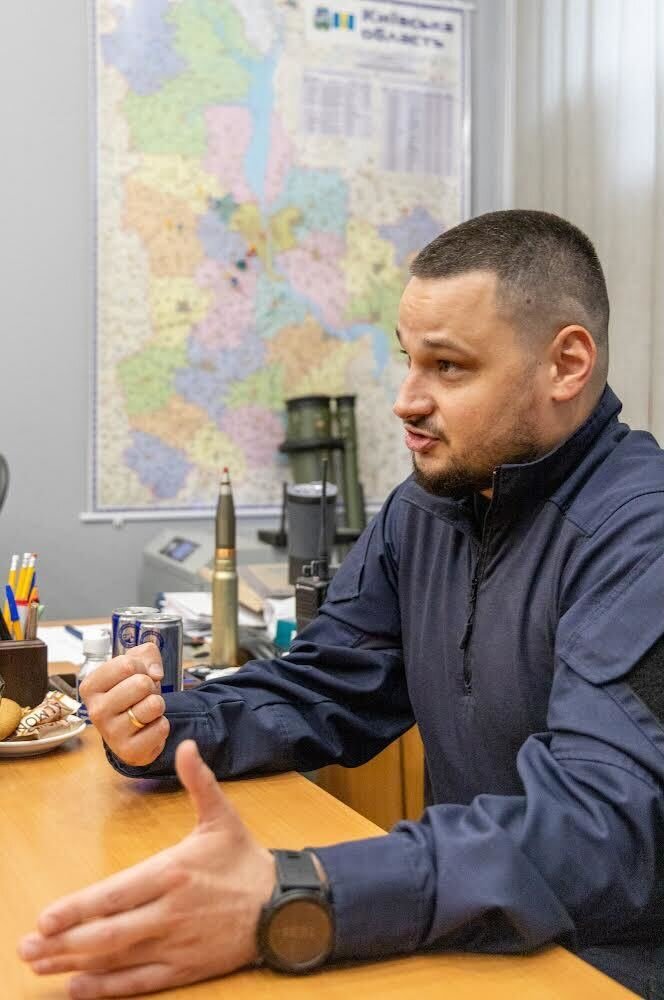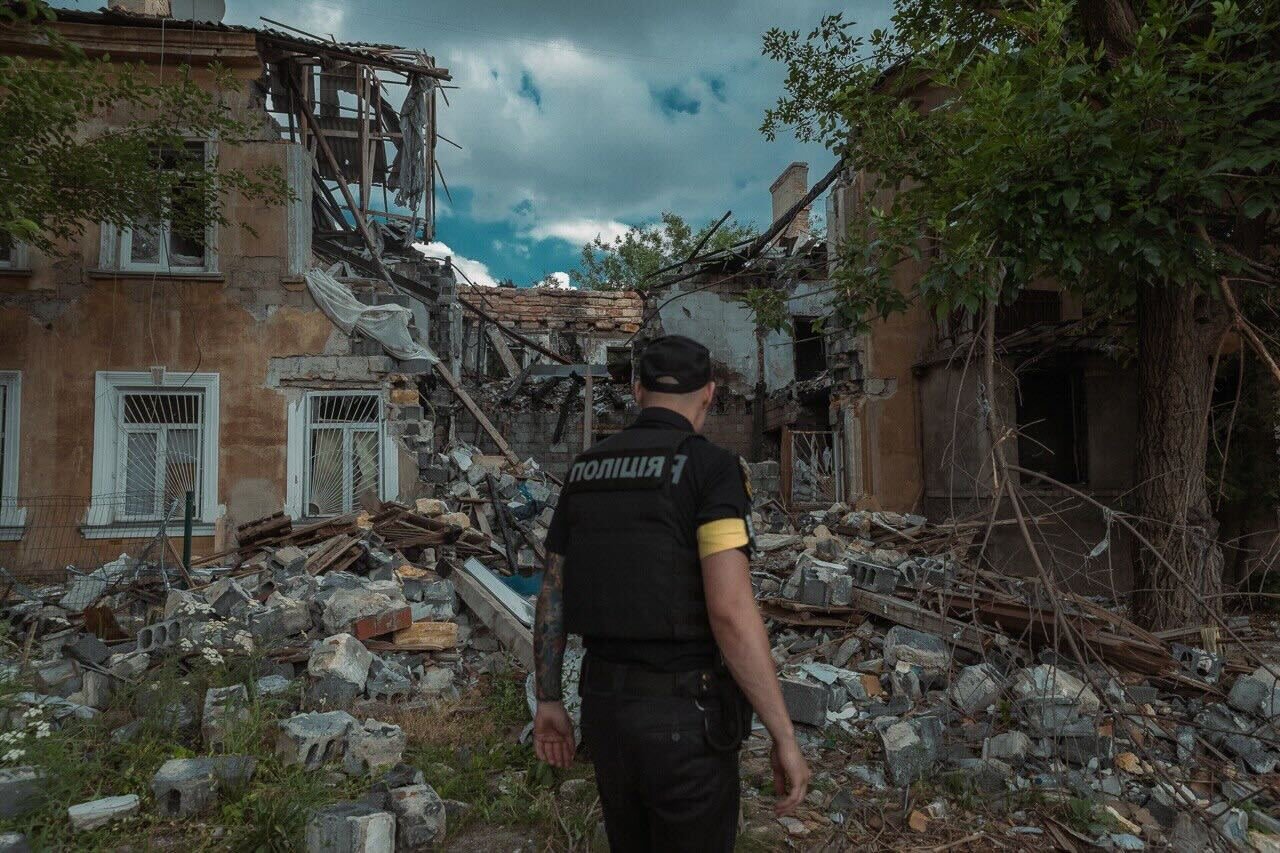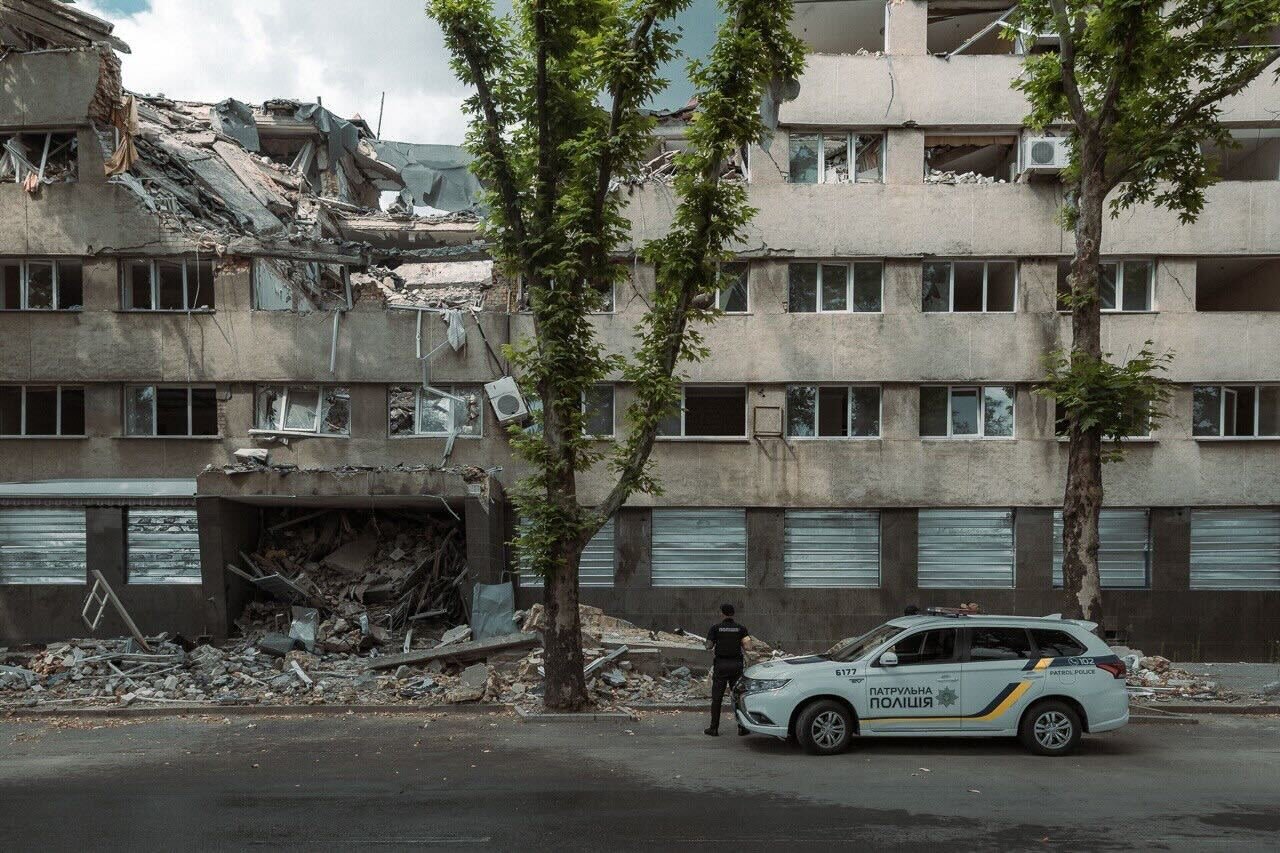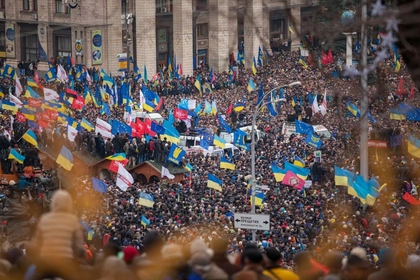The patrol police department of the National Police of Ukraine has been preparing for a full-scale Russian invasion since as far back as 2014. That was when Vladimir Putin’s forces annexed Crimea and first entered the Donbas. Now they are a vital aid to the Armed Forces of Ukraine.
In the first days of the all-out offensive in February, patrol police officers communicated with neighboring units and services to coordinate joint defenses of the city. Currently, the department has 40 divisions and 16,000 full-time employees. Its officers conduct many joint operations with various units of the military.
JOIN US ON TELEGRAM
Follow our coverage of the war on the @Kyivpost_official.
Yevheniy Zhukov, head of the patrol police department who goes by the nickname “Marshal,” tells the Kyiv Post:
“None of our people left their posts – everyone stayed where they were. The patrol policemen of the Luhansk region (including Severodonetsk and Lysychansk) were there until the last moment, until the rocket flew into the office. We evacuated about 40,000 civilians from Severodonetsk. Currently, according to the population census, about 10,000 people remain there.”
Strengthening activity
The structure of patrol police activity in the blockaded cities has completely changed in recent months. From regular patrolling, the police switched to countering subversive and reconnaissance groups (SRGs), combat contact activity, escorting humanitarian convoys, evacuating people, and helping the military with logistics.
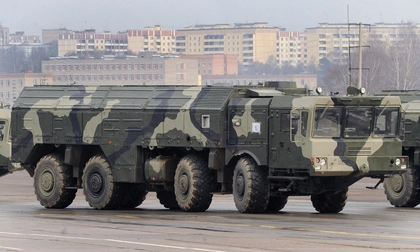
Russia Boosts Missile Production, Stockpiles At Least 1,500 for Ukraine Strikes
Oleksiy Biloshytsky, first deputy chief of the patrol police of Ukraine, explains to the Kyiv Post how the patrol police has been helping citizens:
“We take people out of places where no one wants to go. We might get told that a particular areais already temporarily occupied, but we still go in and help them get out. Most evacuations are successful and we continue to evacuate people from frontline zones”.
In the Luhansk region, evacuation convoys led by the patrol police continued until May 30 when the last evacuation vehicle came under mortar fire. They also helped citizens evacuate from Kyiv.
Police units in “hot spots”
During the blockade of Kyiv, a consolidated police unit was created, the initial activity of which was to conduct offensive operations. In Mykolaiv, a patrol unit protected the airport.
Vitaliy Danyla, head of the patrol police in the Mykolaiv region, stopped tanks and engaged them in a shooting battle. And Ivan Bazarenko, a commander of the unit in the Kherson region, managed to unite people and take them out at an early stage.
“Our unit was among the first to enter Irpin under heavy mortar and artillery fire. A week before the orcs [Russians] left, the police defended that area. We then expanded the unit and entered from different directions,” says Biloshytsky.
During firefights in Kyiv, a patrol police car was fired upon and one policeman was killed. Then, Yuriy Zozulia, head of the Kyiv patrol police department, removed all 130 groups of officers from Kyiv during a three-day shooting. Separate armored groups were created, which responded to calls. He said in this way they managed to save the lives of their personnel.
According to Biloshytsky, the patrol police currently sets the standard because “a policeman is a defender of the state, who must protect citizens during patrols and repulse the enemy.”
Patrol police transformation
Today, the patrol police division is the flagship operation of the National Police of Ukraine which, with such a large number of employees, has been working for many months during a turbulent time and still keeping the line. According to the head of the department, everyone must improve by switching to modern weapon systems supplied by NATO countries.
When the patrol police was first launched, bulletproof vests were only issued for vehicles and not for people. Thanks to the work of the commander, the tailoring system has completely changed and body armor is issued to individuals.
“Before the full-scale invasion, a patrolman received 13,000 hryvnia. This is enough to rent a one-room apartment behind the Kyiv circular road, pay utilities and eat nothing… This is a nationwide issue, which should be raised in the Verkhovna Rada. They are now paying bonuses, because the enemy is here. I think that by now everyone has seen that if you do not feed your army and forces, then you will feed someone else’s,” Zhukov concluded
You can also highlight the text and press Ctrl + Enter


